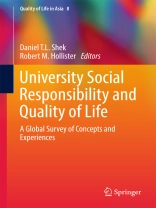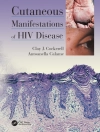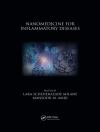This book provides a critical review of the theory and practice of University Social Responsibility. In addition to addressing the nature of and concepts surrounding University Social Responsibility, as well as its ties to areas such as service learning or engaged scholarship, the book also presents effective practices from around the world. Dedicated chapters demonstrate how University Social Responsibility can manifest itself in different types (civic, moral, economic or global responsibility), levels (local, national, regional or international), and formats (partnership, venture or joint project), depending on local contexts and needs. The book also focuses on three areas of work – educating students to take on social responsibility, broadening access to education, and applying knowledge to societal problems – to highlight the potential and viable ways University Social Responsibility can be employed to promote quality of life in society. Offering a unique resource, it isintended to stimulate thinking and expand the repertoire of all educators, administrators, and organizations who wish to incorporate societal needs into their core mission and promote quality of life in different communities around the world.
İçerik tablosu
Part I: Introduction.- 1. The Project: Theoretical Framework and Institutional Experience around the World.- 2. University Social Responsibility Network: A Platform to Promote University Social Responsibility.- Part II: Concepts and Theoretical Considerations.- 3. From Historical Roots to Contemporary Challenges.- 4. University Social Responsibility: Conceptualization and an Assessment Framework.- Part III: Global Experience.- 5. A Comprehensive Strategy to Educate Students in All Fields for Lifetimes of Active Citizenship.- 6. University Social Responsibility as Civic Learning: Outcomes Assessment and Community Partnership.- 7. Connecting Research with Social Responsibility – Developing ‘Age-Friendly’ Communities in Manchester, UK.- 8. Nurturing University Students to be Socially Responsible Citizens: An Examination of Two Approaches to Volunteering.- 9. The Paradoxical Fabric of Hope in Academy-Community Partnerships – Challenging Binary Constructions of Conflict-Cooperation.- 10. Evaluating Service Leadership Programs with Multiple Strategies.- 11. Culture, Extension and Social Inclusion in the University of São Paulo.- 12. Cultivating Competent Individuals Thinling Globally in a Local Setting: Service Learning at Kyoto University.- 13. Reflections on and Practices of Peking University Fulfilling Social Responsibility.- 14. Three Approaches to Cultivating College Students’ Sense of Social Responsibility.- 15. Developing Qualified Citizenship.- 16. University Social Responsibility: The Poly U Way.- Part IV: Conclusion.- 17. Global Experience to Date and Future Directions.
Yazar hakkında
Daniel T.L. Shek (Ph D, FHKPS, BBS, SBS, JP) is the Chair Professor of Applied Social Sciences at the Department of Applied Social Sciences and Associate Vice President (Undergraduate Programme) of Hong Kong Polytechnic University. He has taught social work students at the undergraduate and postgraduate levels for over thirty years. He was Dean of Students (1996-1998) and Dean of General Education (2006-2008) at New Asia College, the Chinese University of Hong Kong. He is Editor-in-Chief of the Journal of Youth Studies and Applied Research on Quality of Life and serves on the editorial board of many international refereed journals including Social Indicators Research and Journal of Adolescent Health. To date, he has published over 85 books, 154 book chapters and more than 500 articles in international refereed journals.
Robert M. Hollister is Founding Executive Director Emeritus and co-founder of the Talloires Network, a global coalition of over 350 universities in 76 countries committed to strengthening civic engagement and social responsibility in higher education. He was Founding Dean of the Jonathan M. Tisch College of Citizenship and Public Service at Tufts University (2000 – 2011), where he is currently a Professor at the Dept. of Urban and Environmental Policy and Planning. A pioneer in the engaged university movement, Professor Hollister led the creation and development of the Tisch College Civic Life, a uniquely comprehensive university-wide program to prepare students in all fields for lifetimes of active citizenship – and to produce citizen engineers and citizen physicians, citizen humanists and citizen businesspeople. A specialist in citizen participation in public affairs and in the leadership and management of nonprofit organizations, Professor Hollister is a co-author of
The Engaged University: International Perspectives on Civic Engagement and Development Politics.
v>












